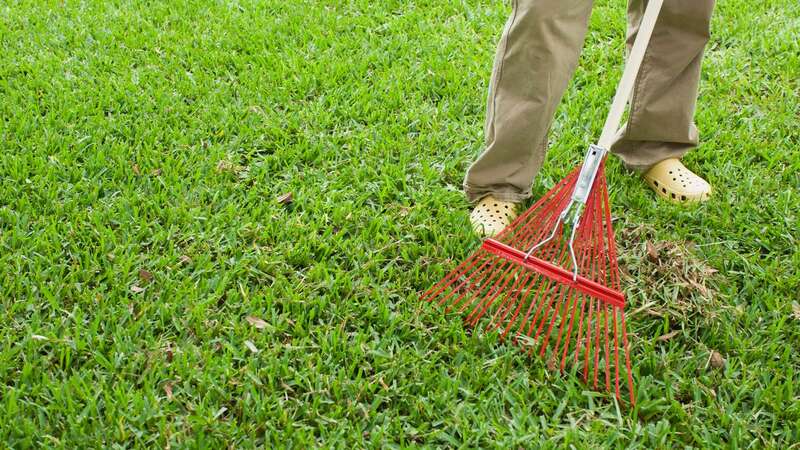
All green-fingered folk will know that clay soil can make planting difficult and leave you with a waterlogged lawn, but one ecologist has revealed a simple trick that will transform your garden.
Despite being rich in plant nutrients, clay soils are heavy to dig and cultivate, and warm up slowly during the summer which leads to delayed plant growth, reports the Royal Horticultural Society (RHS). The heavy soil is mostly made up of very fine mineral particles, giving the earth a sticky and smooth texture, which can make drainage difficult.
Fortunately, ecologist and botanist Becky Searle has shared her expert advice on sprucing up your soil. Taking to TikTok, under the username @sowmuchmore, the gardening guru said: "Over the next few months, I’m going to be doing something of an experiment into a no dig lawn in my garden.
"My garden has a serious problem in that the lawn is built on heavy clay soil with very little topsoil. Even though there are drainage systems underneath the lawn, when it rains the water just stands on the surface and it creates a really boggy, slippery, sticky area where no plants can grow. This isn’t very pleasant for any of us."
The video then showed footage of Becky spreading earth over her garden with a rake, as she continued: "So here I am, spreading one and a half dumpy bags of council green waste over my lawn to add some organic matter." The expert explained how the method encourages the soil to come to the surface to "feed" on the organic matter.
 Four bedroom home with its own TRAIN TRACK on sale… but there’s a catch
Four bedroom home with its own TRAIN TRACK on sale… but there’s a catch
Becky added: "As it comes to the surface and goes back down again having eaten, it’ll open up pores in the soil and this will help aerate the soil and it’ll help to improve the drainage." The RHS has backed this technique, adding that the compost improves the soil’s structure, aeration and biodiversity, while also aids in draining heavy clay soils.
The ecologist concluded that the task was "not really an experiment" because she had worked on similar lawns in the past, and she is "confident" the process will be successful once more. Better Homes & Garden suggests starting the task by using a tiller to loosen the soil, and spreading around two inches of compost on top of the soil and work that in.
It is advised that this process is repeated two more times. The helpful site then explained that regular applications of organic matter will improve your soil's structure, tilth, and overall health.
Impressed followers flocked to the comments section of Becky’s video to share their responses, as one user penned: "I am very interested how this turns out. I have a lawn with poor drainage, just turns boggy with heavy rain."
Another shared: "I would recommend adding some sand, the sand breaks up the clay soil. You need to add it in spring and autumn for a few years." To which Becky responded with: "Sand can be awful on clay, it turns it into concrete. I’ve got quite a lot of experience using this method on lots of types of soil."
A few weeks later, one user asked: "Has the grass poked through yet? Thinking of doing mine but have dogs so wonder how long I’d have to wait before leaving them back on." Becky replied with: "Yes! Almost have a full lawn now."
Read more similar news:
Comments:
comments powered by Disqus
































